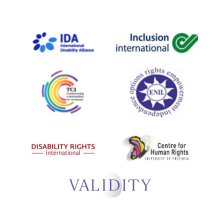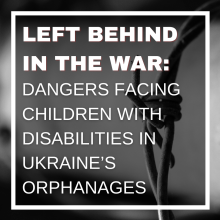Webinar: Protecting Children & Women with Disabilities from Institutionalization
Watch the latest webinar hosted by DRI with the Global Coalition of Deinstitutionalization (GC-DI): "Equal Rights, Diverse Needs: Protections for children and women with disabilities and other high-risks groups under the UN Guidelines on deinstitutionalization, including in emergencies."



